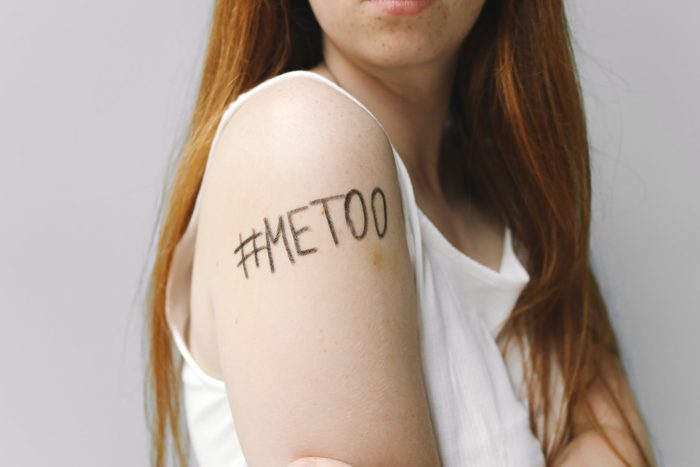*Author’s note: Sensitive content ahead.
“Every participant in sexual activity must be capable of granting their consent. If someone is too intoxicated or incapacitated by alcohol or drugs, or is either not awake or fully awake, they’re incapable of giving consent. Failure to recognize that the other person was too impaired to consent is not ‘drunk sex.’ It’s sexual assault.” ~ Healthline.com
~
“Is it kicking in?” he whispered from the red felt chair to my right.
On the big screen in front of us, Owen Wilson’s character scampered from one end of the room to the other.
Twenty minutes earlier, the two of us had eaten portions of a weed brownie he had brought for us to share.
“I don’t think so,” I replied. “I would know if it was, right?”
“Yeah you would,” he said, reaching into his backpack to break off another piece. After he handed it to me, I popped it into my mouth, washing it down with sips of Dr. Pepper.
Another 30 minutes passed. The credits began to roll, and I still had yet to feel high.
“Must have been a weak batch,” he theorized, as we exited the parking lot. “Or maybe there was more weed in my half.”
A few blocks later, we paused in front of the train tracks to wait for a long freight train to clatter by.
It was then that I began to laugh uncontrollably. Objectively, nothing was funny—but in that moment, everything seemed suddenly hilarious.
“Holy shit, E,” he remarked. Turning his head swiftly in my direction, then back to the passing train: “You’re f*cking baked!”
The train cars continued to trundle past. He glanced over his right shoulder to make sure no other vehicles were behind him, then put his car in reverse. Once we reached the road perpendicular to ours, he continued driving, suddenly propelled by a new, strange sense of urgency.
Were we driving back to the theater? I wondered. Maybe he suddenly remembered he’d left something behind (a realization that coincided with the timing of my edible taking effect). Or maybe we were headed to a gas station to purchase water or snacks.
Where we ended up though was not the theater, nor a gas station, nor anywhere with another human in sight. Instead, he swerved his car onto a quiet side street full of abandoned warehouses and factory buildings.
After parking and turning off the engine, he looked over at me. His demeanor had shifted, overtaken now by a nervous energy. My conscious mind, on a different plane now, didn’t assign it much meaning. Instead it simply inhabited the moment.
I looked out the window again—laughing now at the buildings for their austere and desolate appearances. (What are you trying to be, a set for some dystopian movie? I joked to them in my head.)
That’s when I heard the sound of pants unzipping.
He began firing out questions. Questions like had I hooked up with “any of those girls from the online dating sites” I’d told him about. Questions like had I ever done sexual things with one of my close guy friends.
Years later, other memories from these streets would replace that day’s. Laughs with friends and heart-to-heart talks at the newly opened, gluten-free brewery weeks after my Celiac diagnosis in late 2020. Picking out vegetables at the waterfront farmers market. Delivering Uber Eats to the high-rises that had since replaced those abandoned, wannabe dystopian warehouses.
That day though, and for a while after, recollections of the more pungent and acrid variety needled the air. Leather car seats and musty weed and pizza. Glimpses of his face with rushed, anxious determination.
Memories of him finally suggesting, with the tone one would use to address an infant: “How about we have a little fun now?”
When he moved my hand over toward his pants, my overly content and squinty-eyed self didn’t pull it back.
Part of me sensed that what was happening wasn’t right. Still, the rest of me was so high that it didn’t care, or lacked the combative energy to stop it.
Thirty or so minutes later, he drove me back to town. Not wanting to drop me off at my house though (perhaps worried my parents would hold him responsible for the state I was in), he left me at the park across the street, instructing me to stay there for a few hours.
I’m not sure how long I sat on that wooden bench, but I do know that when I got home, my altered state was apparent to my family pretty much the minute I walked through the door.
~
He and I had been friends for a while but few people knew this.
The fact that we were close is part of why it took years for what had happened that day to really sink in.
And it would take more than a decade for the Me Too movement to ignite the cultural radar. Before then, my definition of sexual misconduct was fixed and unidimensional: a man holds a woman down by force and has sex with her despite resistance and screamed objections.
One couldn’t be assaulted absent those verbal protestations. Nor could they be assaulted by a friend. The word “no” had never left my mouth, which in my mind made what had happened at least somewhat consensual.
Though I knew on some level that it didn’t feel 100 percent right, in my mind he hadn’t done anything technically wrong. (What does “technically wrong” mean though? I asked myself years later. And who defines it?)
My conflicted brain likely settled on the conclusion, “That’s just how most guys are.” Maybe it was unrealistic to hold him to standards that other boys his age didn’t abide by, I thought. And so at some point, I buried the memory, and (on the surface at least) seemed to move past it.
~
We stayed in contact for a few years, continuing to speak every once in a while or meet for coffee when we were both in town.
Over time, these more recent positive interactions updated my memory rolodex. They diluted and covered up the weed brownie day to the point of almost total submersion.
But about a year later, as I began to process my past experiences more in-depth in therapy, it suddenly clicked for me: he had seen an opportunity and capitalized on it.
The fact that he waited until I was noticeably altered, acted with such urgency, and seemed relatively anxious the whole time—as if he knew that what he was doing was shady—were realizations that suddenly billowed through my mind like giant red flags.
Both that realization and my nonlinear journey to arriving at it signal to me how much the topic of sexual assault was once brushed under the carpet. They speak to me of the previous, almost total absence of discourse surrounding it, as well as the lack of acknowledgement that it can be more of a grey-area concept than a black-and-white one. Being violated can occur along a spectrum, from full-on penetrative rape despite a person’s screams of no, to waiting until someone is in an altered state to make a move.
They also speak to me of our collective difficulty with grasping that sometimes “mostly good people” can do bad things.
My positive memories with him were numerous. He asked thoughtful questions. He often made funny, even earnest comments. He was social, with polished conversational skills, and was kind to my family.
It’s possible to remember moments like these and call out harmful behaviors without entirely vilifying the person who engages in them. But I think that, too often though, over-focusing on the positive serves to overshadow or deflect from the real harm that otherwise good people commit. The awareness that he wasn’t altogether bad in large part contributed to the delay in my truly confronting the pain of what had happened—preventing, as it did, my admitting the full truth of it to myself.
Acknowledging that someone who was kind to me did a harmful thing doesn’t make him a bad person. Yet that doesn’t mean that he—or any man, or any person—is above taking accountability for their actions. It also doesn’t change the veracity of the following statement:
“If you’re really drunk or high, you can’t give consent. And if you’re sexual in any way with someone who’s drunk or high and doesn’t know what’s going on and therefore can’t give informed consent, it’s equivalent to raping them.” ~ RAINN
~
I don’t write this to take him down, though I applaud those who’ve had the bravery to rightfully call out their perpetrators. Nor is this about “canceling” someone, as some flippantly refer to a woman’s courageous act of coming forward and speaking out about what was done to her.
Rather, it’s meant to shine light on how a man did a harmful thing and never owned up to it. It’s meant to highlight that this man’s seemingly individual actions actually belong to a larger pattern that has hurt and continues to hurt millions of other individuals (predominantly women) across the globe. As Chanel Miller wrote in her memoir, Know My Name, “Brock [Turner] was not one bad apple, he just threatened to expose the greater, underlying issues of sexual violence on campus.”
The Me Too Movement is making a difference. Still, men across the planet continue to commit assault with zero or minimal repercussions. Woody Allen maintained a thriving career for decades after initial allegations of abuse. Many assailants, Turner included, get away with a slap on the wrist. And plenty of others experience no consequences at all.
Absent an admission of accountability, those affected learn to live with the unaddressed wound. We learn to come to terms with it and heal on our own.
Perhaps an integral part of this recovery process takes place through telling our stories. Together with our narratives, as Vicky Spratt wrote in her article about Me Too, “we find we are bound together not by shame and silence but by the stories we have in common.”
With this in mind, I invite all who have been affected to continue telling them. To keep shining the light on the darkness, with the hope that eventually, there’ll be less of it to drive out. That the movement will be but a memory or footnote in history—the tragic but ever-fading detritus of a bygone era.
~
Please consider Boosting our authors’ articles in their first week to help them win Elephant’s Ecosystem so they can get paid and write more.
~


 Share on bsky
Share on bsky





Read 12 comments and reply